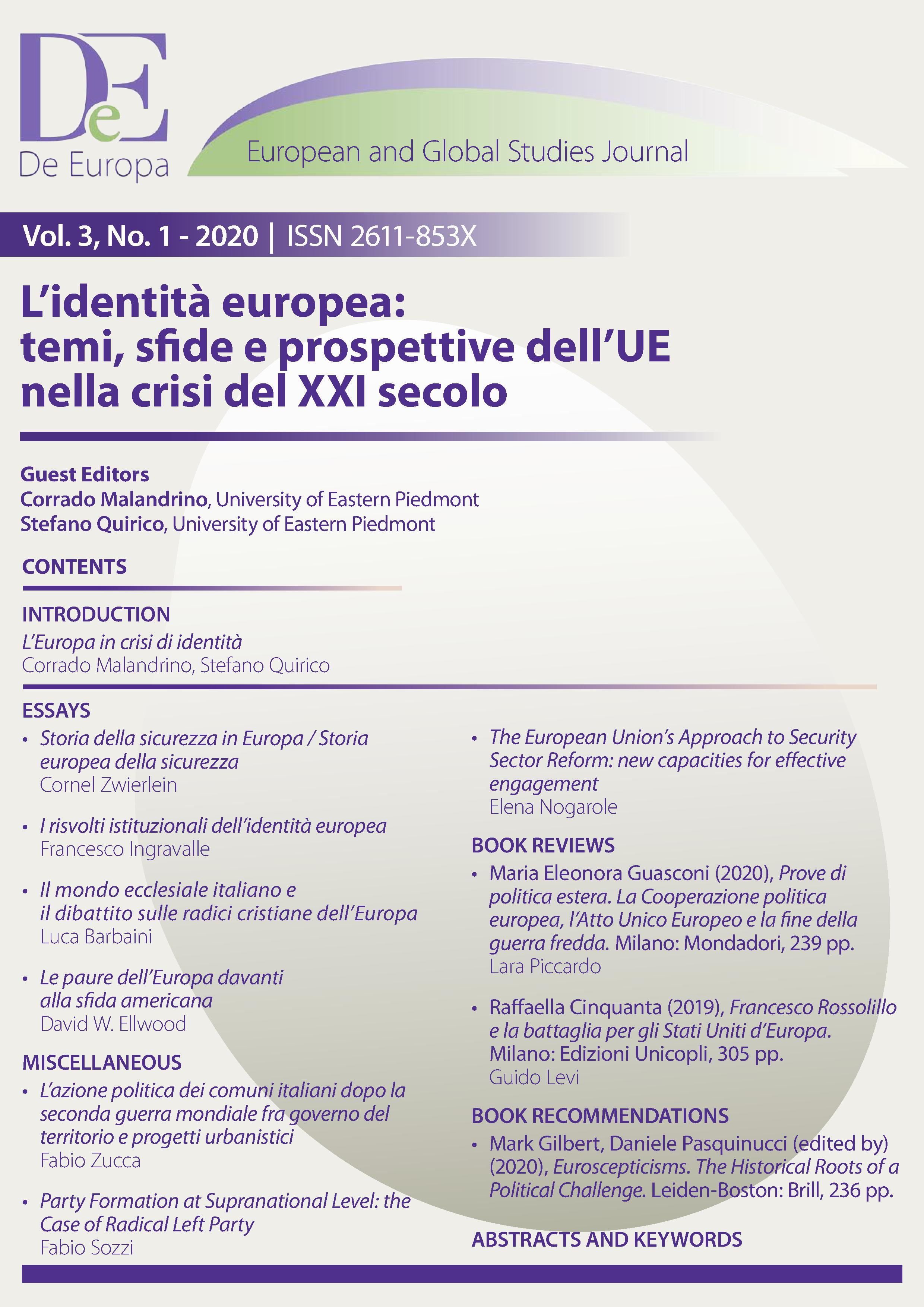The European Union’s approach to Security Sector Reform: new capacities for effective engagement
Abstract
L’articolo offre un approfondimento sull’approccio dell’Unione Europea alla Riforma del Settore della Sicurezza (RSS), un concetto che in tempi recenti è diventato tema centrale delle agende di organizzazioni regionali e internazionali. Dopo una breve introduzione al concetto di SSR, l’analisi prende in considerazione l’evoluzione del quadro politico europeo: dai documenti del 2005 e 2006 sviluppati dal Consiglio e dalla Commissione, al più recente ‘Elementi di un quadro strategico dell'UE per sostenere la riforma del settore della sicurezza’ (2016).
In seguito, l’articolo si focalizza sulle capacità istituite sia ai livelli centrali che sul campo per migliore il supporto dell’UE ai programmi di RSS nei paesi partner. Una lista degli strumenti, attori e strutture più rilevanti è fornita assieme ad una dettagliata descrizione dei loro ruoli e funzioni. Inoltre, le interviste condotte con funzionari del Servizio Europeo per l’Azione Esterna coinvolti nella RSS forniscono una chiara rappresentazione della capacità europea. Infine, l’ultimo paragrafo analizza l’approccio dell’UE da una prospettiva più concreta. La Repubblica della Georgia è scelta come caso studio per presentare le attività in atto e gli attori/strutture interessati nell’ambito dei programmi europei di RSS.
Parole chiave: Unione Europea, Riforma del Settore della Sicurezza, Georgia, Politica, Attori
The article provides an insight on the European Union’s approach to Security Sector Reform (SSR), a concept that in recent years has become a central issue on the agendas of regional and international organisations. After a brief introduction to the concept of SSR, the analysis takes in consideration the evolution of the EU policy framework: from the 2005 and 2006 documents developed by the Council and the Commission, to the most recent ‘Elements for an EU-wide strategic framework to support security sector reform’ (2016). Subsequently, it focuses on the capacities established both at the headquarters and in the field to improve EU’s support to SSR programmes in partner countries. A list of the most relevant instruments, actors and structures is offered along with a detailed description of their functions and roles. Furthermore, the interviews conducted with officials of the European External Action Service involved in SSR provide a clear overview of the EU capacity. Finally, the last paragraph analyses the EU’s approach from a closer perspective. The Republic of Georgia is chosen as a case study for presenting the activities in place and the actors/structures involved as part of the European SSR programmes.
Keywords: European Union, Security Sector Reform, Georgia, Policy, Actors



 The journal has been approved for inclusion in DOAJ. The DOAJ listing of the journal is available at
The journal has been approved for inclusion in DOAJ. The DOAJ listing of the journal is available at 
